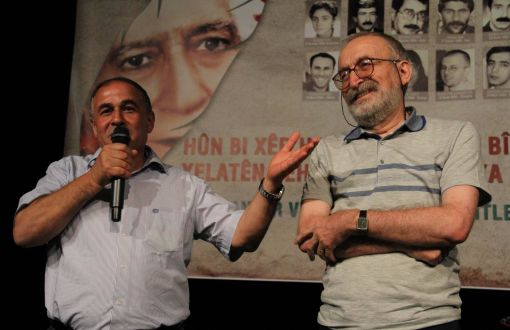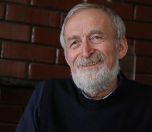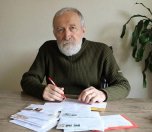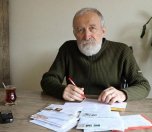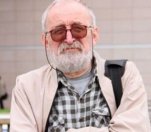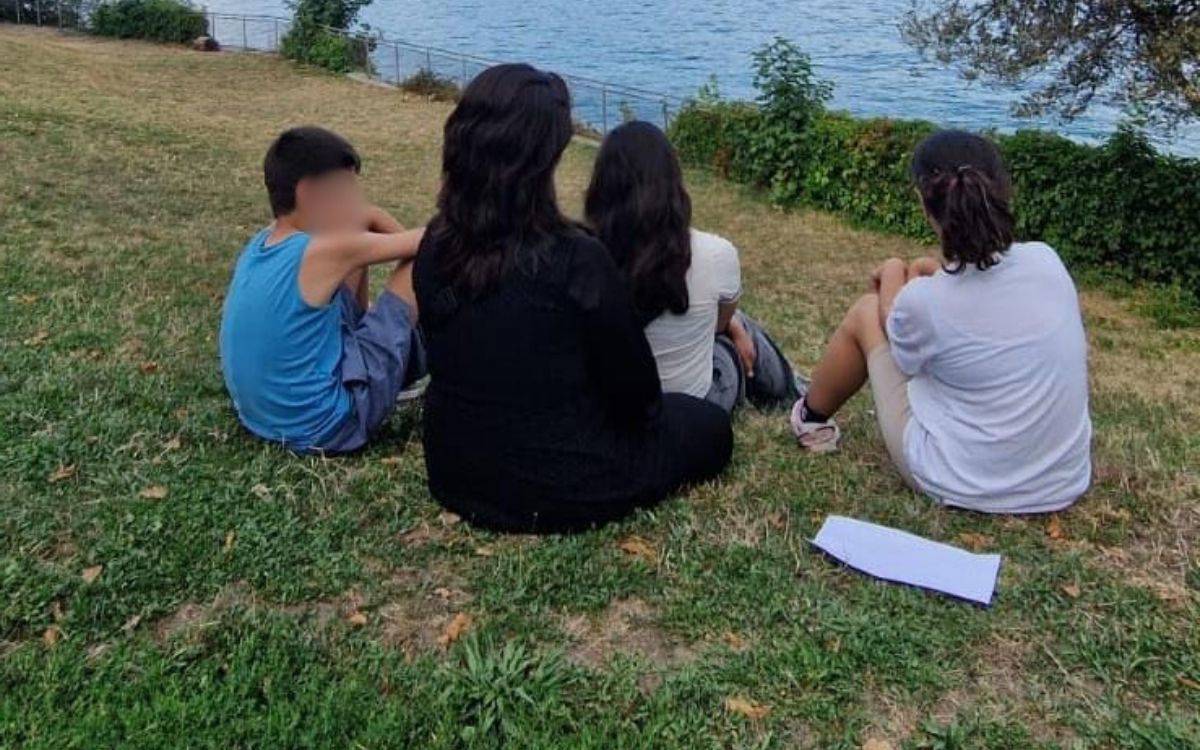* Photograph: Journalist Hayri Demir Archive
Click to read the article in Turkish
The dawn is about to break in Ankara. I woke up at around 5 a.m. The city is quiet. I read all newspapers, including the pro-government ones. I set the agenda. I left the house at my usual hour, I went to the Ankara Office of the newspaper. I poured tea and read the news again until the friends came.
Then, I went to post office to receive the letters coming from prisons. For years, I have heard the voices of prisoners with the letters coming from prison. Some of them extended condolences, some of them told their troubles. I left the office around noon and went home. I had my lunch and started working. My entire daily routine is almost based on working.
These remarks are, of course, not uttered by Hüseyin Aykol. Because he is arrested for being the Co-Editor-in-Chief of Özgür Gündem. There are 67 lawsuits against him. Other verdicts will perhaps be upheld as well.
His dear wife, human rights defender Nuray Çevirmen, whom I called to write this article, gave me this information.
While I was talking to her, I thought that we do not know Hüseyin Aykol that much. I remember having said at the agency where I worked years ago, "I wish the days were longer so that we can write more, there is no time." The answer I received from dear News Director Fatma Koçak was "Let's send you to Hüseyin Aykol, you will see how he uses the time."
It was only on the prison letters' part of the newspaper and on its impressum that I saw his name. When I started exchanging letters with prisoners, I realized how difficult a task it was and how much emotional bonds it required. Reporters like us read his page by taking notes. Because there are dozens of issues to make news.
While his wife Nuray was talking about Hüseyin Aykol, whom we know a little, and about who he is and how he conceives the life, I realized once again that he is bonded with his people and journalism at heart, just like several others working in the Kurdish media.
But, who is Hüseyin Aykol? His wife Nuray tells us:
He was born in the village of Poyrazdamları in Salihli, Manisa in 1956.
Though he was born to a well-off family, they became poor later on, his father took several jobs, including grocery business and farming.
With the support of his primary school teacher, he got admitted to İzmir Private High School on a scholarship as a boarder. Finishing his high school education, Aykol sat for the university entrance exams and got admitted to the Medical School of Ankara University. He came to Ankara.
In the second year of his university education, he got acquainted with the left struggle, he joined youth associations. In that period, he had the opportunity to meet his revolutionary friends.
He was elected the chair of youth association. Though he passed the first year at university without problems, he failed his classes in the second year. In the third year, he understood that he could not study medicine.
He told his family that he wanted to study at the Faculty of Political Sciences. His decision was not welcomed. Still, he sat for the university exam again and, this time, he got admitted to the Faculty of Political Sciences of Ankara University with a higher grade.
In the meanwhile, he started working for the Ser Publishing, a leftist publishing house of the time, to meet his expenses. Since he studied in a private high school, he had a good command of English. He did translations for the publishing house and supported editing works.
In fact, some of his translations were published in 1978. Despite his young age, he became a member of the Writers Union of Turkey (TYS).
He was tortured for 45 days
While he was a university student, he was detained in Ankara in 1981 [after the 1980 coup], he was tortured for 45 days.
He was arrested and sent to Mamak Military Prison. In that period, he was again subjected to torture in the place where he made to go through hell.
After he was released, he continued working in İzmir. He was taken into custody for several times. He was arrested again and sentenced to a further 6 years, 8 months in prison. He was held in different prisons, being sporadically released and arrested.
He worked in every phase of Özgür Gündem
After he was released from prison, he worked for the weekly newspaper Halk Gerçeği (Reality of People). After Halk Gerçeği, he worked for Yeni Ülke (New Country). Both newspapers were published weekly; afterwards, they began publishing the daily Özgür Gündem (Free Agenda).
He worked in several phases of Özgür Gündem. He was its Editor-in-Chief for many years. All through his life, he continued doing journalism in the light of Özgür Gündem tradition.
He has raised around three thousand students
Musa Anter has left the deepest mark on him in the Kurdish Media. His love and respect for Musa Anter has an incredible dimension. He has raised around three thousand students to this day.
One of the most exciting tasks for him was to write for his "from inside" column, where he answered the letters sent to him from prisons, voiced their problems and became the voice and breath of people in prisons.
He pulls a long face when no letters come from prisons
The days when no letters come from prisons are gloomy days for him, he is grieved and pulls a long face all through the day.
But, even a single letter is enough to cheer him up. The ones who are in prisons have a particular importance for him.
From prisons comes to him everything that can be put on paper, ranging from blurbs, stories and poems to condolences for the ones who have lost their loved ones, comics, drawings, essays and memories. He answers them all one by one without fail or delay.
Hüseyin Aykol, the voice of prisoners outside, is now in Sincan Prison.
In that case, it is now the turn of journalists outside to keep the voice up for prisoners, primarily Hüseyin Aykol. (EMK/SD)





